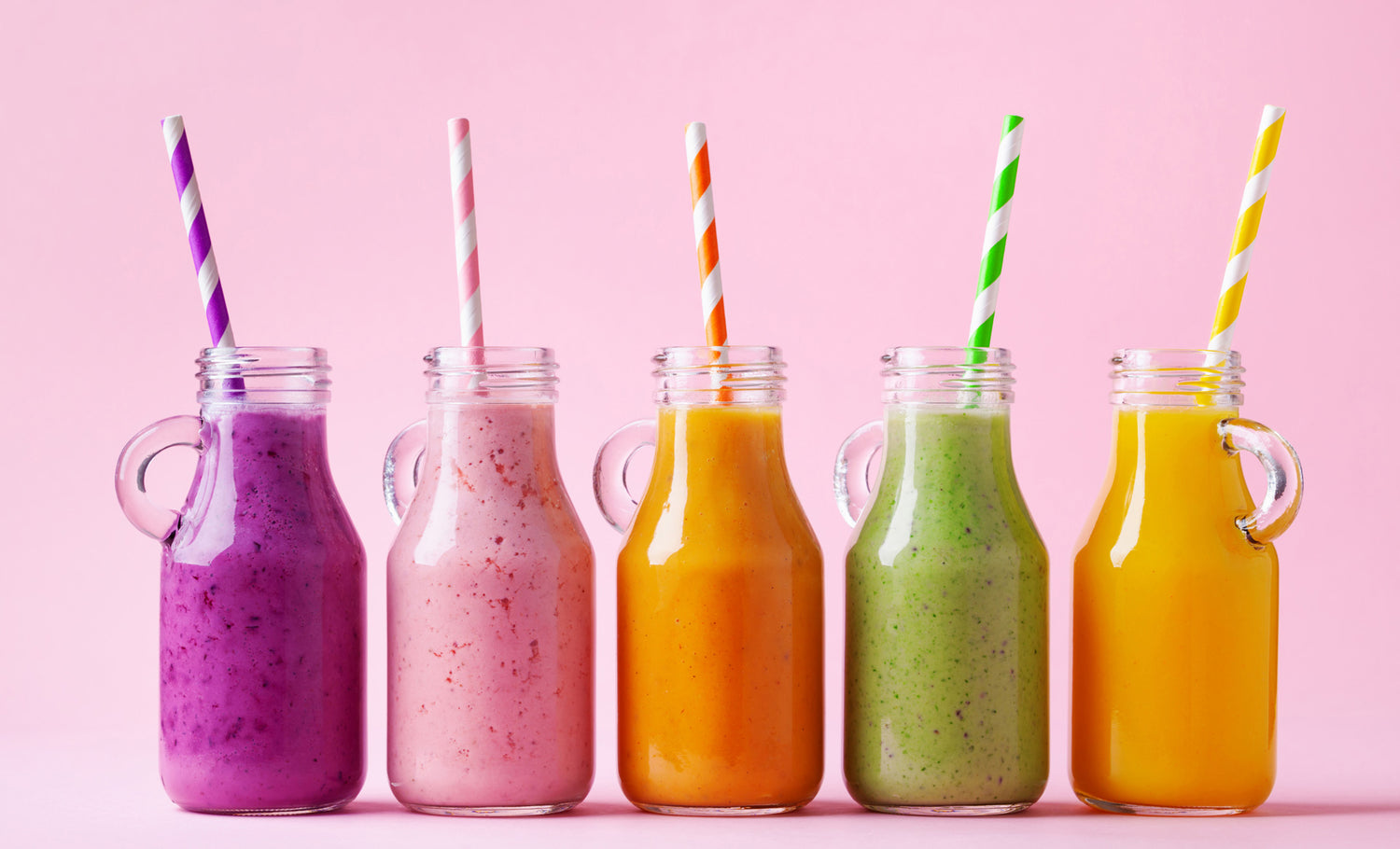NeuroShake has over 189 health benefits

Why NeuroShake exists..
We never intended to be a product, the Founders drive was simply to help his Son, Hector. And so we exist to help many others from the success and persistence in finding the right formula.
We wanted to solve two problems:
- Getting the nutrition to the brain by helping the bodily functions and systems
- Accessibility, getting it all into one scoop so you don't have to buy 30 ingredients separately - its expensive - and imagine crushing up pills and opening capsules...everyday!
Medical professionals such as therapist, neurologists, nutritionists are the cornerstone of our business together with research and dedication, we aid everyone to improve.
NeuroShake comes in two sizes
Subscriptions available with great savings on the product page.
60g is a months supply, 120g is two months unless a Medical Practitioner has prescribed two scoops.
-
NeuroShake 60g
Regular price £49.00Regular priceUnit price per -
NeuroShake 120g
Regular price £75.00Regular priceUnit price per
We trademarked all in one scoop!
Easy to make..all in one scoop®

How to make
- One scoop comes with NeuroShake.
- As its flavourless, mix it with milk, juice or your favourite Shake.
We called it NeuroShake, because the Founder mixed it into Hectors shake every morning and realised that Hector who is super sensitive to texture and taste didn't notice.
Recipes
Need a Blender, NeuroShake and a cup.
- Favourite fruit or fruits - mixed berries and bananas work well.
- 250ml of water or milk
- Blend
- Add a scoop of NeuroShake when the liquid is in the cup, so you get every single bit of nutrition.
Hectors mum was able to introduce a new flavour to each day of the week now he has a rota.
189 health benefits
Discover what all the ingredients do individually, together they have higher bioavailability and work synergistically to give the effect we claim backed by science.
Ingredients, Dosage & Research
Ingredients List
NeuroShake contains 30 highly-potent vitamins, minerals and cofactors including iodine to support normal cognitive function, biotin to support macronutrient metabolism and magnesium to support normal muscle function. Vitamin B12 and B6 contribute to normal functioning of the nervous system and reduction of tiredness & fatigue.
|
Ingredients (2.2 grams to provide)
|
Amount (2.2g) |
RDA |
|---|---|---|
|
Creatine Monohydrate
|
411mg |
- |
|
L-Arginine Base |
329mg |
- |
|
Magnesium (Citrate) |
33mg |
- |
|
Magnesium (Malate) |
33mg |
- |
|
Vitamic C (L-Ascorbic Acid) |
197mg |
492% |
|
L-Carnitine (HCL 100%) |
165mg |
- |
|
Choline (L-Bitartrate) |
49mg |
- |
|
Vitamin B5 (Ca. Pantothenate) |
99mg |
3282% |
|
Alpha Ketoglutarate (Ca. Salt) |
99mg |
- |
|
Coenzyme Q10 |
82mg |
- |
|
Calcium (Carbonate) |
20mg |
- |
|
Potassium (Citrate) |
17mg |
- |
|
Inositol (Myo-inositol) |
33mg |
- |
|
Alpha Lipoic Acid |
33mg |
- |
|
Zinc (Gluconate) |
4mg |
88% |
|
Vitamin E (40iu) |
14mg |
222% |
|
Vitamin B1 (Thiamine) |
8mg |
1492% |
|
Vitamin B2 (Riboflavin) |
8mg |
1172% |
|
Vitamin B3 (Nicotinamide) |
8mg |
102% |
|
Vitamin B6 (P5P) |
4mg |
468% |
|
Vitamin B6 (Pyridoxine HCI) |
4mg |
468% |
|
Selenium (L-Selenomethionine) |
17µg |
- |
|
Manganese (Bisglycinate) |
329µg |
- |
|
Vitamin D3 |
5µg |
197% |
|
Folate (5-MTHF Calcium) |
1mg |
1094% |
|
Biotin |
329µg |
1313% |
|
Vitamin B12 (Methylcobalamim) |
164µg |
13129% |
|
Chromium (Picolinate) |
17µg |
82% |
|
Molybdenum |
33µg |
131% |
|
Iodine (Potassium Iodide) |
33µg |
- |
Dosage List
It is recommended to give less product in the first few days, in order to get your child used to the taste and to reduce the possibility of nausea.
- Give 25% of the dose in the table for both doses on the first day.
- Give 50% of the dose in the table for both doses on the second day.
- Give 75% of the dose in the table for both doses on the third day.
- Give the full amount of the dose in the table for all days thereafter.
Metric System
|
Persons Weight |
Scoops |
Powder Weight |
Beverage |
|---|---|---|---|
|
10-19 kg |
0.5 |
1.1 g |
100-250 ml |
|
20-39 kg |
0.75 |
1.6 g |
100-330 ml |
|
40-70 kg |
1 |
2.2 g |
100-500 ml |
|
Over 70 kg |
1-2 |
4.4 g |
100-500 ml |
Research List
There are many physicians who have advocated for the use of dietary supplements in patients with autism and other neurodevelopmental disorders. Some examples of progressive physicians in this field include Dr. Martha Herbert, Dr. Andrew Wakefield, and Dr. Richard Deth.
Dr. Martha Herbert is a pediatric neurologist and assistant professor of neurology at Harvard Medical School. She has conducted research on the role of nutrition and environmental factors in neurodevelopmental disorders such as autism and has advocated for the use of dietary supplements, as well as other complementary and alternative treatments, in the management of these conditions.
Dr. Andrew Wakefield is a former gastroenterologist who has conducted research on the potential link between the gut microbiome and neurodevelopmental disorders such as autism. He has also advocated for the use of dietary supplements, as well as other complementary and alternative treatments, in the management of these conditions.
Dr. Richard Deth is a pharmacologist and professor at Northeastern University who has conducted research on the role of environmental toxins in neurodevelopmental disorders such as autism. He has also advocated for the use of dietary supplements, as well as other complementary and alternative treatments, in the management of these conditions.
A 2012 study published in the Journal of Child Neurology found that children with autism who received a daily multivitamin/mineral supplement experienced significant improvements in their behavior and cognitive function.
pubmed.ncbi.nlm.nih.gov/22151477
According to a 2009 study published in the Journal of Child and Adolescent Psychopharmacology, children with ADHD who received a daily multivitamin/mineral supplement experienced significant improvements in their behavior and cognitive function.
liebertpub.com
A 2011 study published in BMC Psychiatry found that adults with ADHD who received a daily multivitamin/mineral supplement experienced significant improvements in their symptoms and overall functioning.
bmcpsychiatry.biomedcentral.com
A 2002 study published in the Journal of Child Neurology found that children with developmental disabilities who received a daily multivitamin/mineral supplement experienced significant improvements in their cognitive function and adaptive behavior.
liebertpub.com
A 2011 randomized, double-blind, placebo-controlled trial published in the Journal of the American Medical Association found that adults with ADHD who received a daily omega-3 fatty acid supplement experienced significant improvements in their symptoms compared to those who received a placebo.
pubmed.ncbi.nlm.nih.gov/21651783
A 2017 systematic review and meta-analysis published in the Journal of Lipid Research found that children and adolescents with ADHD who received a nutriotional supplement experienced significant improvements in their symptoms compared to those who did not receive the supplement.
pubmed.ncbi.nlm.nih.gov/28438367
pubmed.ncbi.nlm.nih.gov/28091344
.
A 2013 randomized, double-blind, placebo-controlled trial published in the Journal of Child Neurology found that children with ADHD who received a daily iron supplement experienced significant improvements in their symptoms compared to those who received a placebo.
pubmed.ncbi.nlm.nih.gov/23789306
A 2011 systematic review and meta-analysis published in the Journal of Lipid Research found that children and adolescents with ADHD who received a daily nutriotional supplement experienced significant improvements in their hyperactivity/impulsivity symptoms compared to those who did not receive the supplement.
pubmed.ncbi.nlm.nih.gov/21766545
A 2005 systematic review published in the Journal of Nutrition found that children with ADHD who received a daily multivitamin/mineral supplement experienced significant improvements in their behavior and cognitive function compared to those who did not receive the supplement.
pubmed.ncbi.nlm.nih.gov/15673999
A 2000 randomized, double-blind, placebo-controlled trial published in the American Journal of Clinical Nutrition found that children with ADHD who received a daily iron supplement experienced significant improvements in their symptoms compared to those who received a placebo.
pubmed.ncbi.nlm.nih.gov/11098885
A 2009 systematic review and meta-analysis published in the Journal of Lipid Research found that children and adolescents with ADHD who received a daily omega-3 fatty acid supplement experienced significant improvements in their hyperactivity/impulsivity symptoms compared to those who did not receive the supplement.
pubmed.ncbi.nlm.nih.gov/19917212
Alpha-Ketoglutarate plays a role in energy production from macronutrients.
https://www.ncbi.nlm.nih.gov/pmc/articles/PMC4910649/pdf/cmped-10-2016-043.pdf
Alpha Lipoic Acid (ALA) is critical for carbohydrate metabolism and acts as an antioxidant, potentially affecting insulin signaling.
https://www.ncbi.nlm.nih.gov/pubmed/?term=21119085
https://www.ncbi.nlm.nih.gov/pubmed/?term=24753527
Arginine increases nitric oxide production, improving blood flow. Its supplementation may address mitochondrial disorders relevant to ASD.
https://www.ncbi.nlm.nih.gov/pmc/articles/PMC5519148/pdf/nihms876713.pdf
Biotin supplementation has shown improvements in autistic features.
https://www.ncbi.nlm.nih.gov/pmc/articles/PMC3135510/pdf/1743-7075-8-34.pdf
https://www.ncbi.nlm.nih.gov/pmc/articles/PMC3871708
https://www.ncbi.nlm.nih.gov/pubmed/13680408?dopt=Abstract
http://www.epilepsybehavior.com/article/S1525-5050(14)00412-0/pdf
Carnitine is linked to behavioral improvements in ASD and enhanced metabolic markers.
https://www.ncbi.nlm.nih.gov/pmc/articles/PMC4910649/pdf/cmped-10-2016-043.pdf
https://www.ncbi.nlm.nih.gov/pmc/articles/PMC3539542/pdf/medscimonit-17-6-pi15.pdf
https://www.ncbi.nlm.nih.gov/pubmed/28703319
https://www.ncbi.nlm.nih.gov/pubmed/25679448
https://www.ncbi.nlm.nih.gov/pubmed/25440829
https://www.ncbi.nlm.nih.gov/pubmed/22566635
Choline supports folate metabolism neurotransmission and prevents fatty liver. Its deficiency can lead to cognitive issues.
https://www.ncbi.nlm.nih.gov/pubmed/9183326
https://www.ncbi.nlm.nih.gov/pmc/articles/PMC2518394
Chromium supplementation aims to address broad nutritional needs.
https://www.ncbi.nlm.nih.gov/pubmed/28665792
https://www.ncbi.nlm.nih.gov/pubmed/27581303
Cobalamin (Vitamin B12) is essential for neurological health; deficiency prevalent in ASD, with supplementation showing promise.
https://www.ncbi.nlm.nih.gov/pubmed/23287069
https://www.ncbi.nlm.nih.gov/pubmed/28074329
https://www.ncbi.nlm.nih.gov/pubmed/27544717
https://www.ncbi.nlm.nih.gov/pmc/articles/PMC4723262/pdf/pone.0146797.pdf
https://www.ncbi.nlm.nih.gov/pmc/articles/PMC2610366/pdf/nihms68264.pdf
https://www.ncbi.nlm.nih.gov/pubmed/?term=19056591
https://www.ncbi.nlm.nih.gov/pmc/articles/PMC3810468/pdf/AURT2013-609705.pdf
https://www.ncbi.nlm.nih.gov/pubmed/?term=20804367
https://www.ncbi.nlm.nih.gov/pubmed/26889605
https://www.autismspeaks.org/Needs/Needs-news/small-study-finds-b12-injections-ease-autism-symptoms-some-children
Creatine Monohydrate facilitates ATP recycling, supporting high energy demand in muscle and brain.
https://pubmed.ncbi.nlm.nih.gov/35984306/
https://www.ncbi.nlm.nih.gov/pmc/articles/PMC8912287/
https://pubmed.ncbi.nlm.nih.gov/37368234/
Folate (Vitamin B9) is critical for neurodevelopment; supplementation could mitigate neurodevelopmental issues in ASD.
https://www.mdpi.com/2075-4426/11/11/1141
https://pubmed.ncbi.nlm.nih.gov/22230883/
https://pubmed.ncbi.nlm.nih.gov/34834493/
Inositol supports overall nutrition and mental health with its role in serotonin metabolism.
https://pubmed.ncbi.nlm.nih.gov/9203092/#:~:text=Inositol%20is%20a%20precursor%20of,on%209%20children%20with%20autism
Iodine addresses deficiency noted in ASD children, particularly from developing countries.
https://www.ncbi.nlm.nih.gov/pubmed/24120386
Magnesium plays a potential role in ASD treatment, especially when combined with vitamin B6.
https://www.ncbi.nlm.nih.gov/pubmed/28074329
https://www.ncbi.nlm.nih.gov/pubmed/20625937
https://www.ncbi.nlm.nih.gov/pubmed/1828703
https://www.ncbi.nlm.nih.gov/pubmed/21840465
https://www.ncbi.nlm.nih.gov/pmc/articles/PMC4910649/pdf/cmped-10-2016-043.pdf
Molybdenum observed deficiencies in ASD; its specific therapeutic role remains to be elucidated.
https://www.ncbi.nlm.nih.gov/pubmed/23118818
https://www.ncbi.nlm.nih.gov/pubmed/26656556
Niacin (Vitamin B3) employed for its potential in addressing mitochondrial dysfunction in ASD.
https://www.ncbi.nlm.nih.gov/pmc/articles/PMC9964499/#B39-jpm-13-00252
Pantothenic Acid observed deficiencies in ASD diets; significant for metabolic processes.
https://www.ncbi.nlm.nih.gov/pubmed/26052041
https://www.ncbi.nlm.nih.gov/pmc/articles/PMC5121959/pdf/13229_2016_Article_109.pdf
Potassium is included to ensure a balanced intake of essential nutrients, addressing common deficiencies.
https://pubmed.ncbi.nlm.nih.gov/34008235/
Pyridoxine (Vitamin B6) research indicates potential benefits in ASD treatment, particularly for metabolic improvements.
https://www.ncbi.nlm.nih.gov/pubmed/16494569
https://www.ncbi.nlm.nih.gov/pubmed/21840465
https://www.ncbi.nlm.nih.gov/pubmed/1828703
https://www.ncbi.nlm.nih.gov/pubmed/27330305
Riboflavin (Vitamin B2) is utilized at high doses to potentially enhance metabolic enzyme activity in ASD.
https://www.ncbi.nlm.nih.gov/pubmed/21840465
Selenium is an essential trace element with some evidence pointing to lower levels in ASD.
https://www.ncbi.nlm.nih.gov/pubmed/28074329
https://www.ncbi.nlm.nih.gov/pubmed/20625937
https://www.ncbi.nlm.nih.gov/pubmed/28326463
Thiamine (Vitamin B1) supports energy metabolism with potential benefits in ASD treatment for those with dietary deficiencies.
https://www.ncbi.nlm.nih.gov/pubmed/28078576
https://www.ncbi.nlm.nih.gov/pubmed/25553376
https://www.ncbi.nlm.nih.gov/pubmed/27330305
https://www.ncbi.nlm.nih.gov/pubmed/12195231
Vitamin C, D, E support redox balance, mitochondrial function, and neurological health in ASD.
https://www.ncbi.nlm.nih.gov/pubmed/28078576
https://www.ncbi.nlm.nih.gov/pubmed/27432261
https://www.ncbi.nlm.nih.gov/pmc/articles/PMC4910649/pdf/cmped-10-2016-043.pdf
https://www.ncbi.nlm.nih.gov/pubmed/?term=21119085
https://www.ncbi.nlm.nih.gov/pubmed/?term=24753527
https://www.ncbi.nlm.nih.gov/pubmed/28217829
https://www.ncbi.nlm.nih.gov/pubmed/26514973
https://www.ncbi.nlm.nih.gov/pubmed/?term=27663117
https://www.ncbi.nlm.nih.gov/pubmed/28407358
https://www.ncbi.nlm.nih.gov/pubmed/28217829
https://www.ncbi.nlm.nih.gov/pubmed/25876214
https://www.ncbi.nlm.nih.gov/pubmed/?term=27868194
https://www.ncbi.nlm.nih.gov/pubmed/27132010
https://www.ncbi.nlm.nih.gov/pmc/articles/PMC4910649/pdf/cmped-10-2016-043.pdf
https://www.ncbi.nlm.nih.gov/pubmed/?term=21119085
https://www.ncbi.nlm.nih.gov/pubmed/?term=24753527
Zinc is a deficiency common in ASD, with supplementation showing promise in reducing autistic behaviours.
https://www.ncbi.nlm.nih.gov/pubmed/27059237
https://www.ncbi.nlm.nih.gov/pubmed/22355646
https://www.ncbi.nlm.nih.gov/pubmed/26656556
https://www.ncbi.nlm.nih.gov/pubmed/24277719
https://www.ncbi.nlm.nih.gov/pmc/articles/PMC4910649/pdf/cmped-10-2016-043.pdf

NeuroShake 60g
This pot serves 30 scoops, take one per day with your smoothie, shake or water in the morning.
Share




NeuroShake 120g
This pot serves 60 scoops, take one per day with your smoothie, shake or water in the morning.
Share














